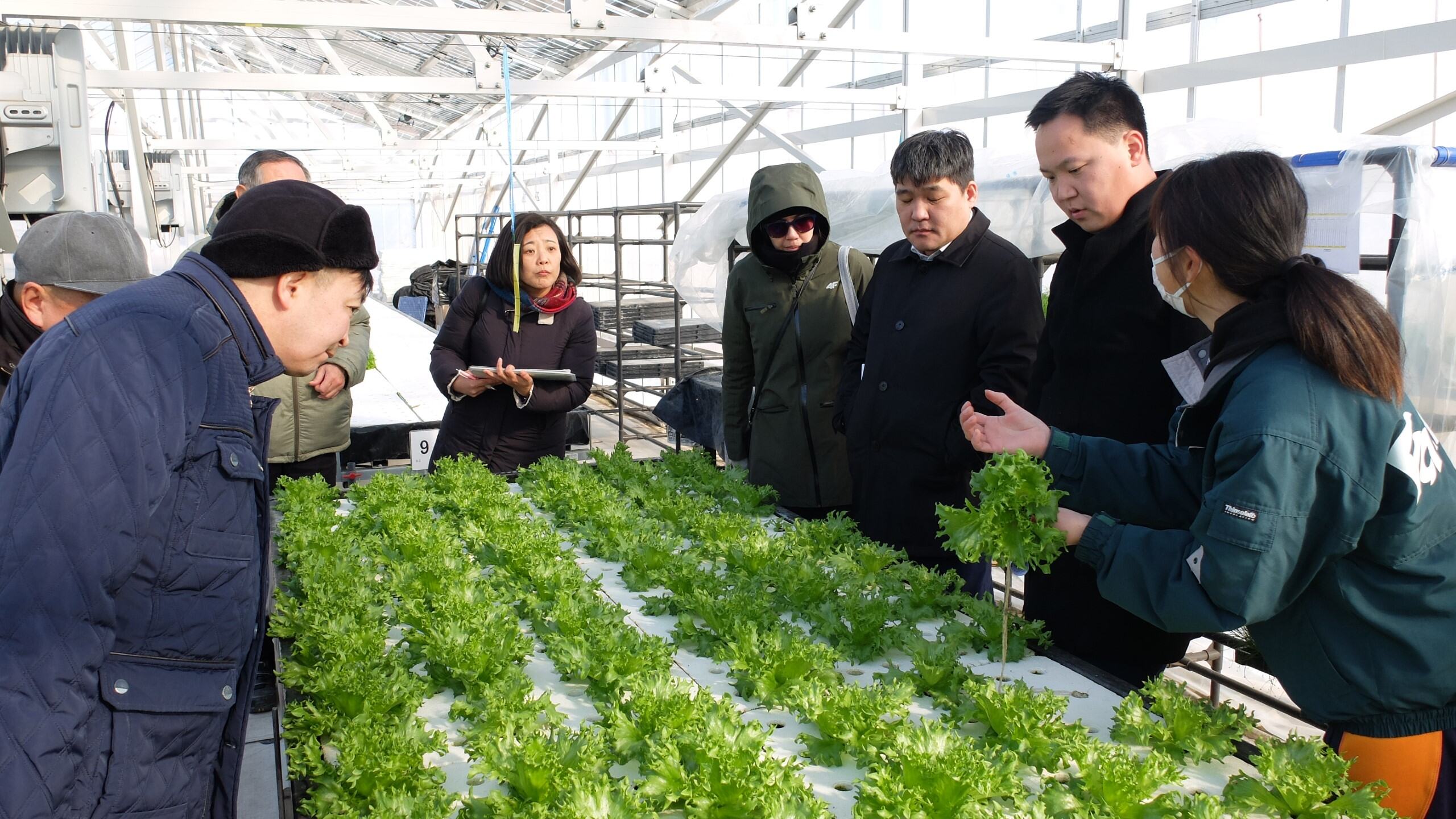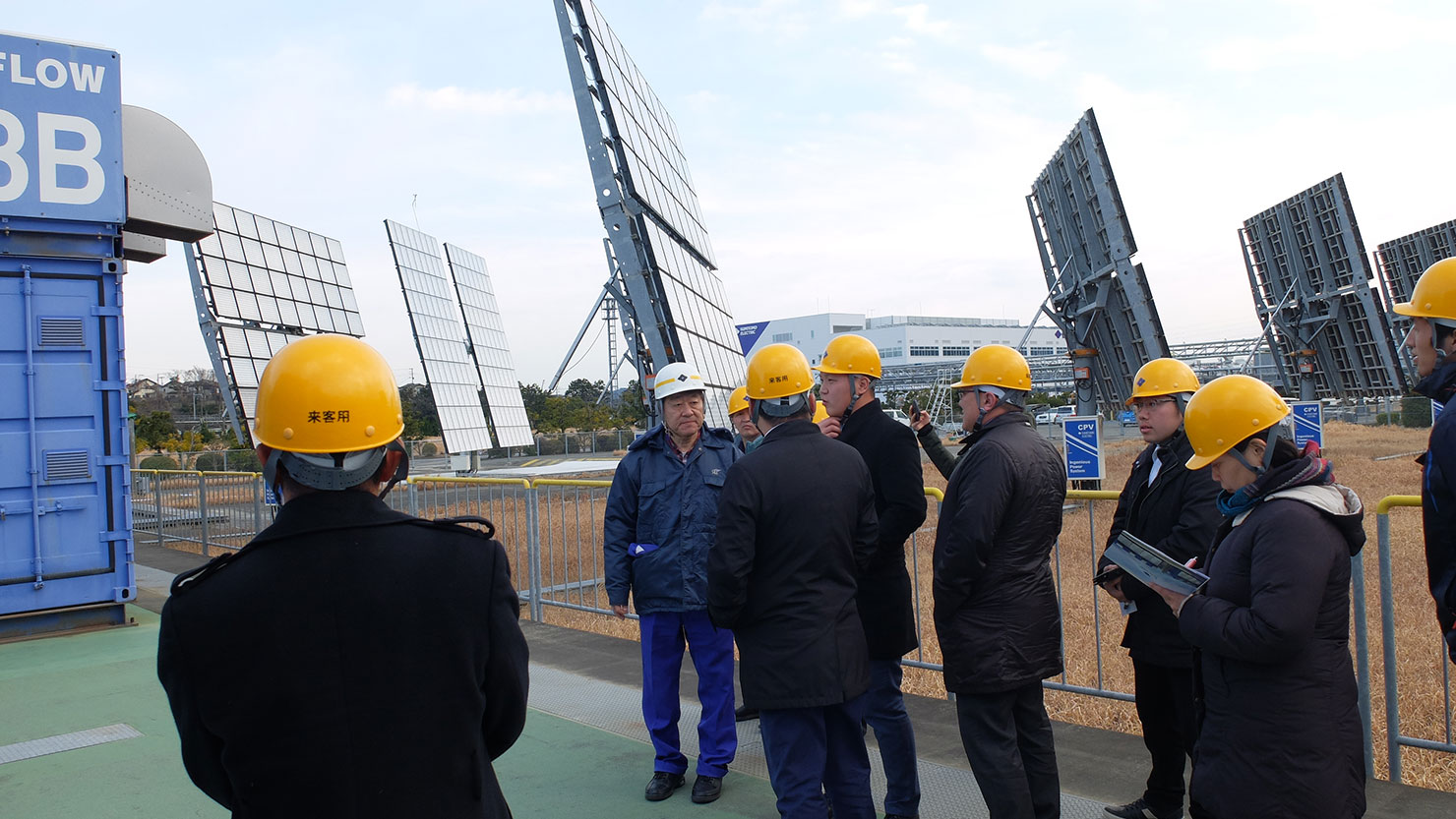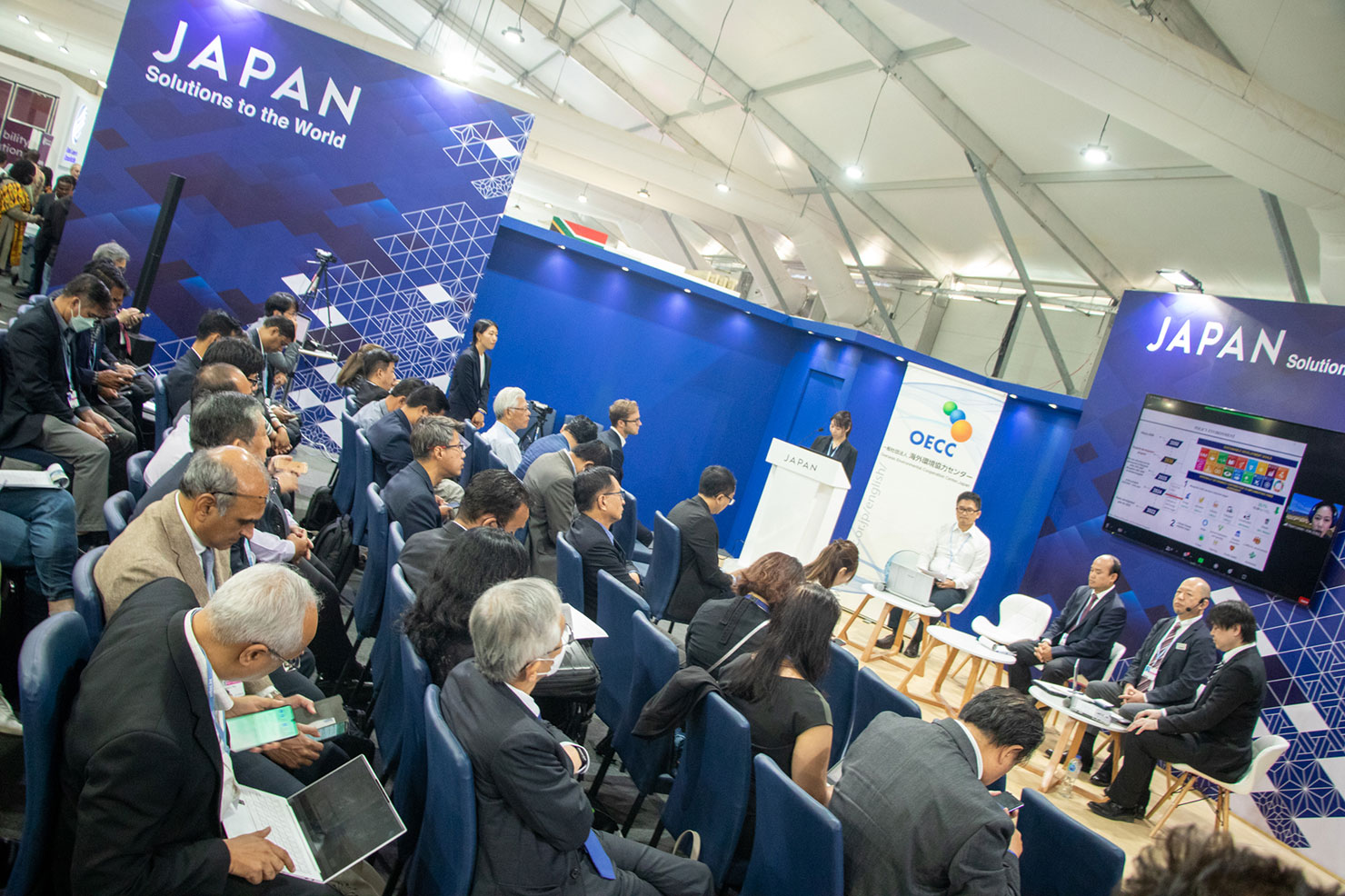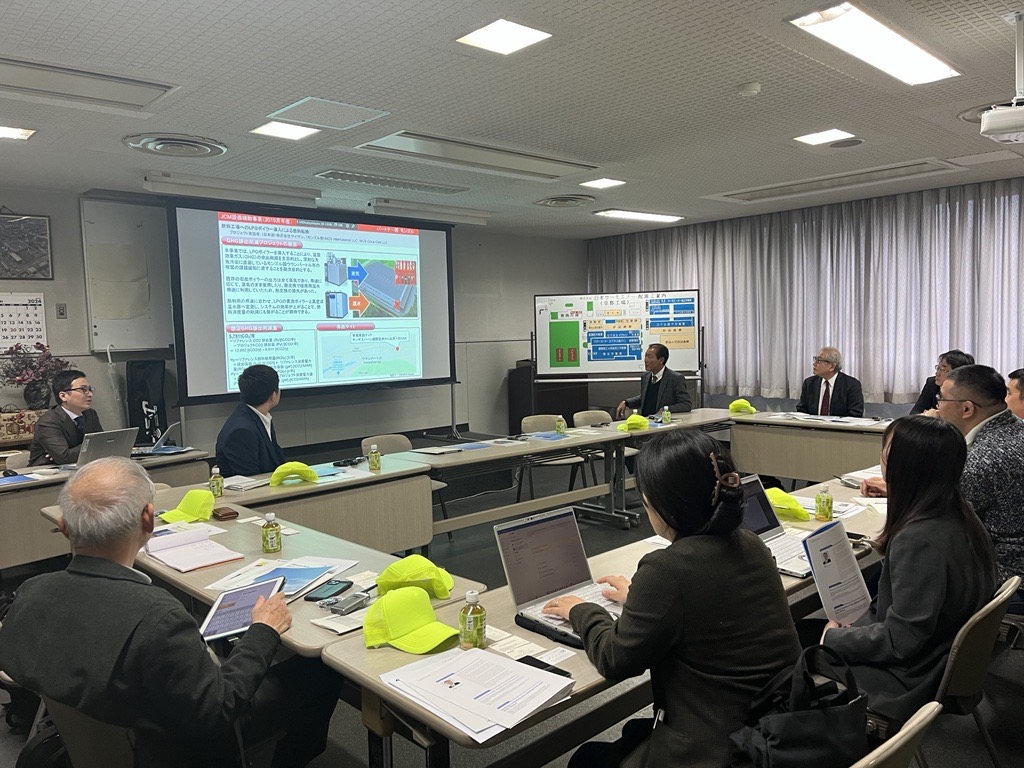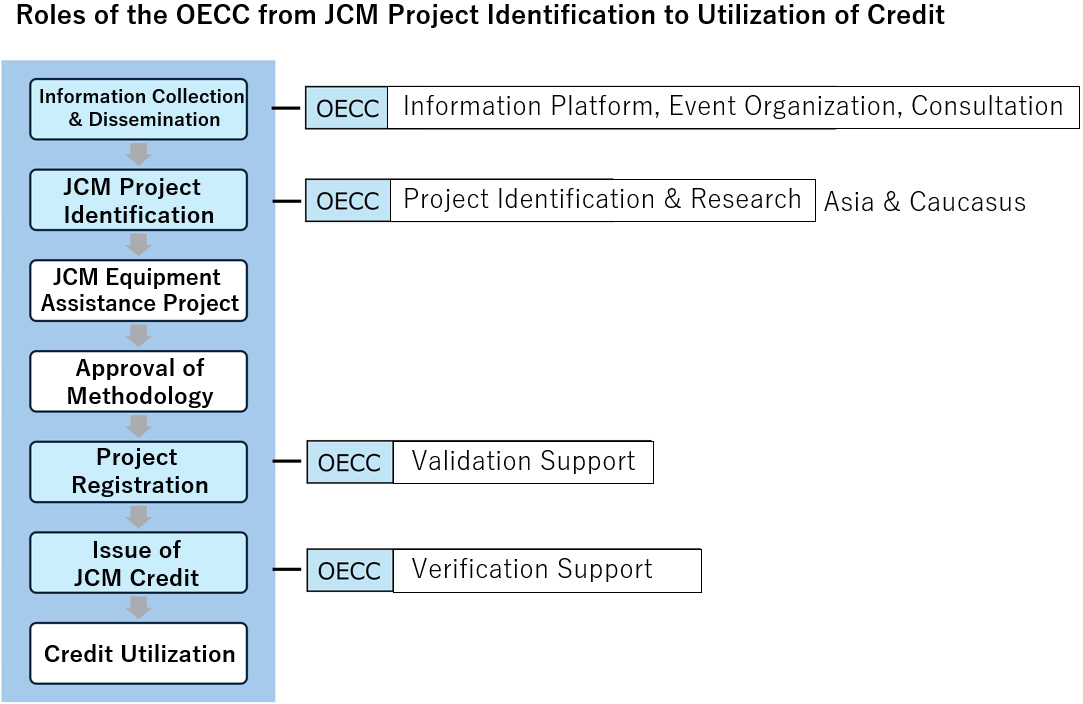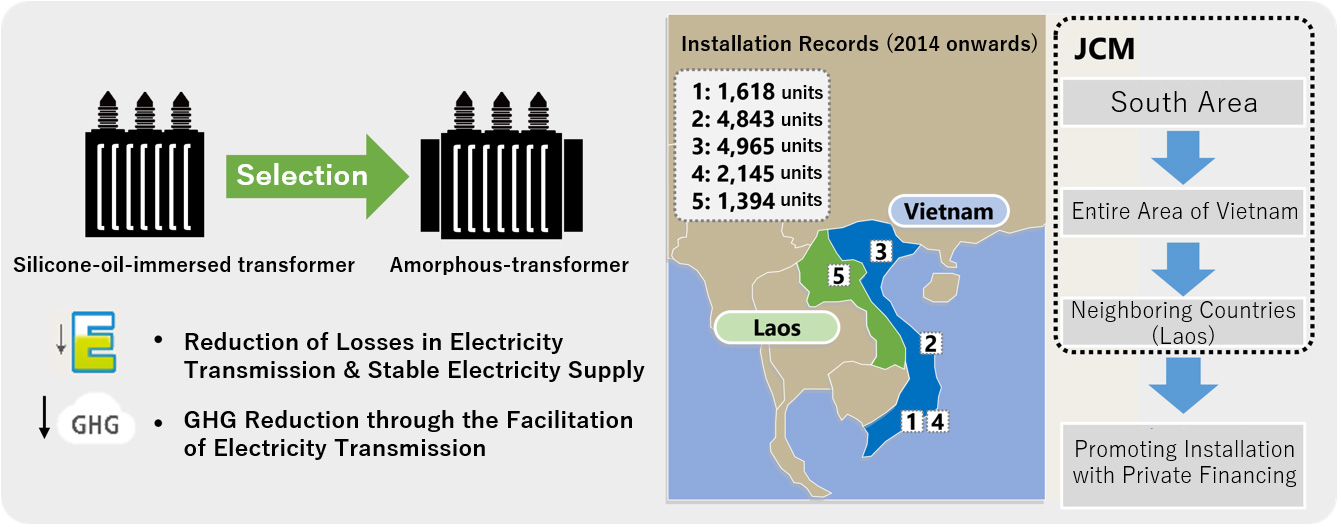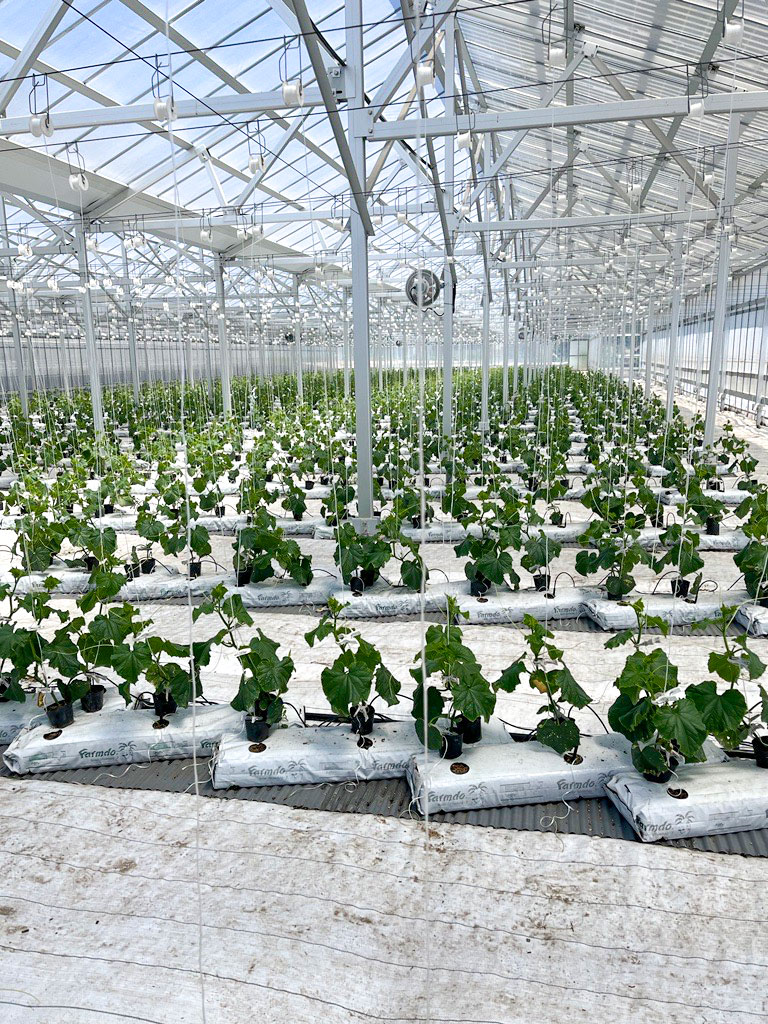Roles of the OECC
Since around 2013 – the early days of JCM – the OECC has been promoting JCM and supporting the development of its projects under a project commissioned by the Ministry of the Environment, Japan (MOEJ). Carbon Markets Express, which is an MOEJ website operated by the OECC, serves as a comprehensive information platform for JCM, providing general information and the latest trends of the carbon market mechanism as a comprehensive repository. Utilizing our knowledge of decarbonization technologies and carbon credits as well as our connections with local governments mainly in Asia and the Caucasus region, we provide research and advisory services to support companies and others engaged in JCM.


